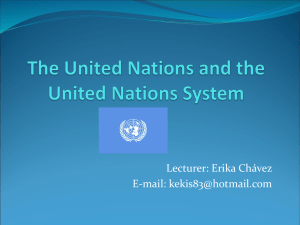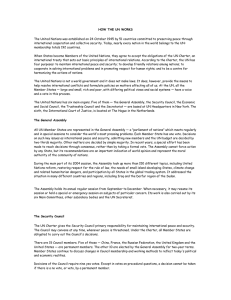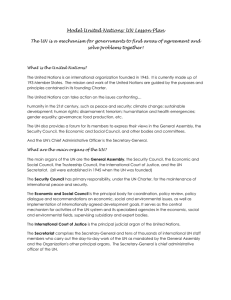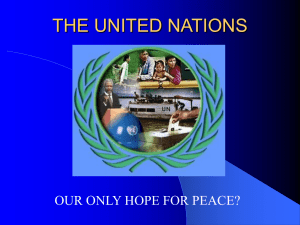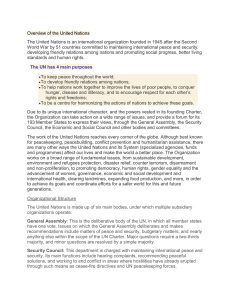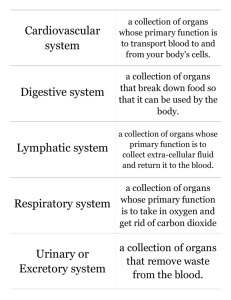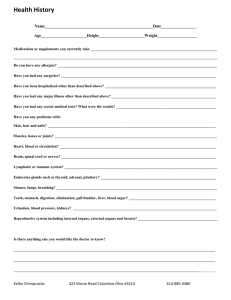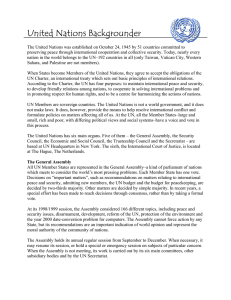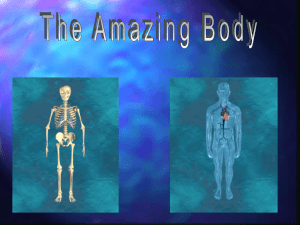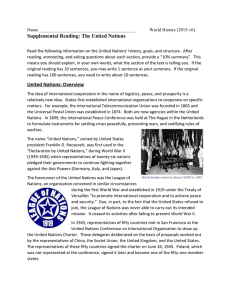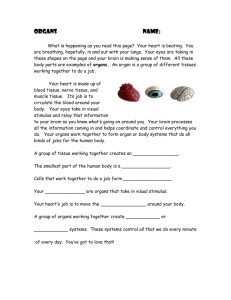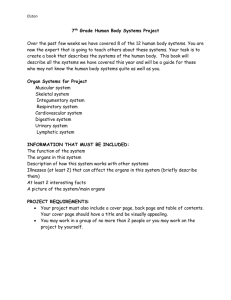The United Nations - Main organs an key Issues Abstract from
advertisement
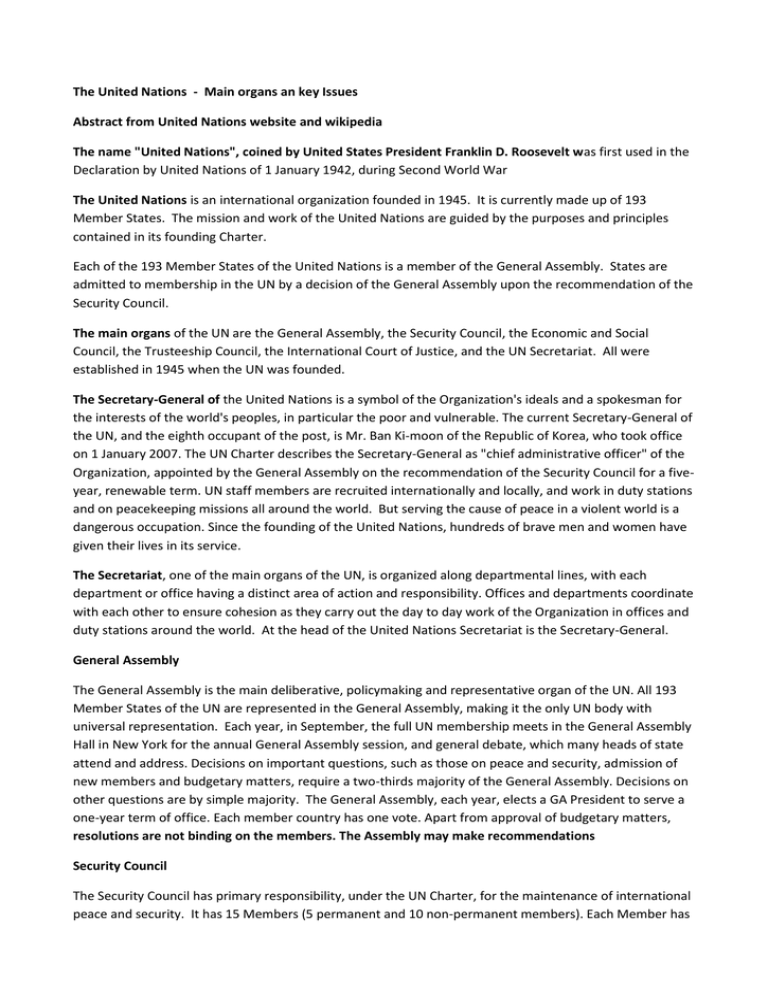
The United Nations - Main organs an key Issues Abstract from United Nations website and wikipedia The name "United Nations", coined by United States President Franklin D. Roosevelt was first used in the Declaration by United Nations of 1 January 1942, during Second World War The United Nations is an international organization founded in 1945. It is currently made up of 193 Member States. The mission and work of the United Nations are guided by the purposes and principles contained in its founding Charter. Each of the 193 Member States of the United Nations is a member of the General Assembly. States are admitted to membership in the UN by a decision of the General Assembly upon the recommendation of the Security Council. The main organs of the UN are the General Assembly, the Security Council, the Economic and Social Council, the Trusteeship Council, the International Court of Justice, and the UN Secretariat. All were established in 1945 when the UN was founded. The Secretary-General of the United Nations is a symbol of the Organization's ideals and a spokesman for the interests of the world's peoples, in particular the poor and vulnerable. The current Secretary-General of the UN, and the eighth occupant of the post, is Mr. Ban Ki-moon of the Republic of Korea, who took office on 1 January 2007. The UN Charter describes the Secretary-General as "chief administrative officer" of the Organization, appointed by the General Assembly on the recommendation of the Security Council for a fiveyear, renewable term. UN staff members are recruited internationally and locally, and work in duty stations and on peacekeeping missions all around the world. But serving the cause of peace in a violent world is a dangerous occupation. Since the founding of the United Nations, hundreds of brave men and women have given their lives in its service. The Secretariat, one of the main organs of the UN, is organized along departmental lines, with each department or office having a distinct area of action and responsibility. Offices and departments coordinate with each other to ensure cohesion as they carry out the day to day work of the Organization in offices and duty stations around the world. At the head of the United Nations Secretariat is the Secretary-General. General Assembly The General Assembly is the main deliberative, policymaking and representative organ of the UN. All 193 Member States of the UN are represented in the General Assembly, making it the only UN body with universal representation. Each year, in September, the full UN membership meets in the General Assembly Hall in New York for the annual General Assembly session, and general debate, which many heads of state attend and address. Decisions on important questions, such as those on peace and security, admission of new members and budgetary matters, require a two-thirds majority of the General Assembly. Decisions on other questions are by simple majority. The General Assembly, each year, elects a GA President to serve a one-year term of office. Each member country has one vote. Apart from approval of budgetary matters, resolutions are not binding on the members. The Assembly may make recommendations Security Council The Security Council has primary responsibility, under the UN Charter, for the maintenance of international peace and security. It has 15 Members (5 permanent and 10 non-permanent members). Each Member has one vote. Under the Charter, all Member States are obligated to comply with Council decisions. The Security Council takes the lead in determining the existence of a threat to the peace or act of aggression. It calls upon the parties to a dispute to settle it by peaceful means and recommends methods of adjustment or terms of settlement. In some cases, the Security Council can resort to imposing sanctions or even authorize the use of force to maintain or restore international peace and security. The Security Council has a Presidency, which rotates, and changes, every month. The five permanent members hold veto-power over UN resolutions, allowing a permanent member to block adoption of a resolution , though not debate. Economic and Social Council The Economic and Social Council is the principal body for coordination, policy review, policy dialogue and recommendations on economic, social and environmental issues, as well as implementation of internationally agreed development goals. It serves as the central mechanism for activities of the UN system and its specialized agencies in the economic, social and environmental fields, supervising subsidiary and expert bodies. It has 54 Members, elected by the General Assembly for overlapping three-year terms. It is the United Nations’ central platform for reflection, debate, and innovative thinking on sustainable development. Ecosos’s functions include information gathering, advising member nations and making recommendations. International Court of Justice The International Court of Justice is the principal judicial organ of the United Nations. Its seat is at the Peace Palace in the Hague (Netherlands). It is the only one of the six principal organs of the United Nations not located in New York (United States of America). The Court’s role is to settle, in accordance with international law, legal disputes submitted to it by States and to give advisory opinions on legal questions referred to it by authorized United Nations organs and specialized agencies. Key Issues Economic growth and sustainable development, International peace and security, Development of Africa, Human rights, Humanitarian assistance, Justice and international law, Nuclear, chemical und conventional weapons disarmament and Drug control, crime prevention and counter terrorism Millennium Goals Combat HIV/AIDS malaria and other diseases, develop a global partnership for development, achieve universal primary education, reduce child mortality, promote gender equality and empower women, ensure environmental sustainability, eradicate extreme poverty and hunger, improve maternal health. A cura di Sara Marsico
